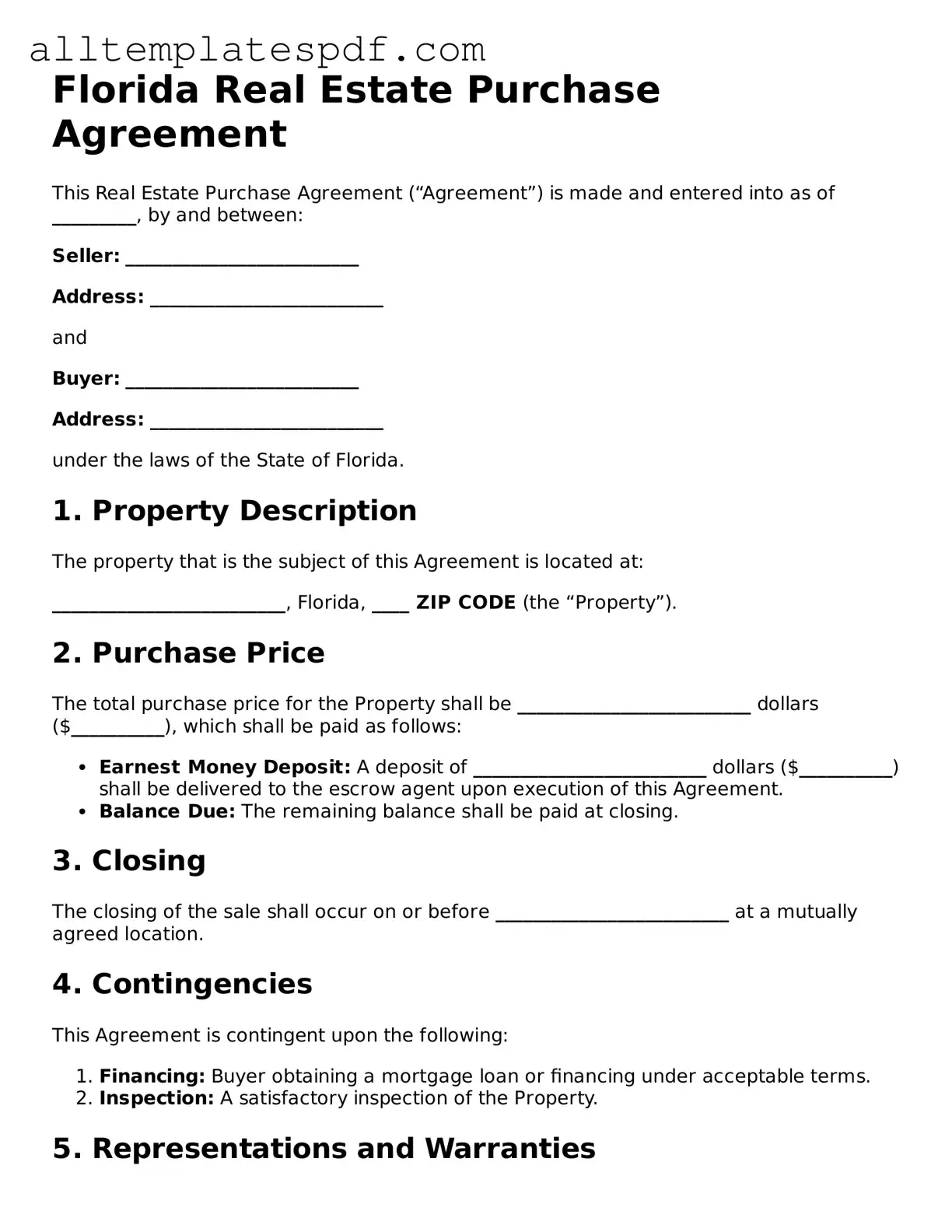Blank Real Estate Purchase Agreement Template for the State of Florida
The Florida Real Estate Purchase Agreement is a legal document that outlines the terms and conditions of a real estate transaction between a buyer and a seller. This form is essential for ensuring that both parties understand their rights and obligations in the sale. To get started on your real estate journey, fill out the form by clicking the button below.
Open Editor

Blank Real Estate Purchase Agreement Template for the State of Florida
Open Editor
Fast and easy form completion
Complete Real Estate Purchase Agreement digitally — fast and easy.
Open Editor
or
↓ Real Estate Purchase Agreement PDF Form
